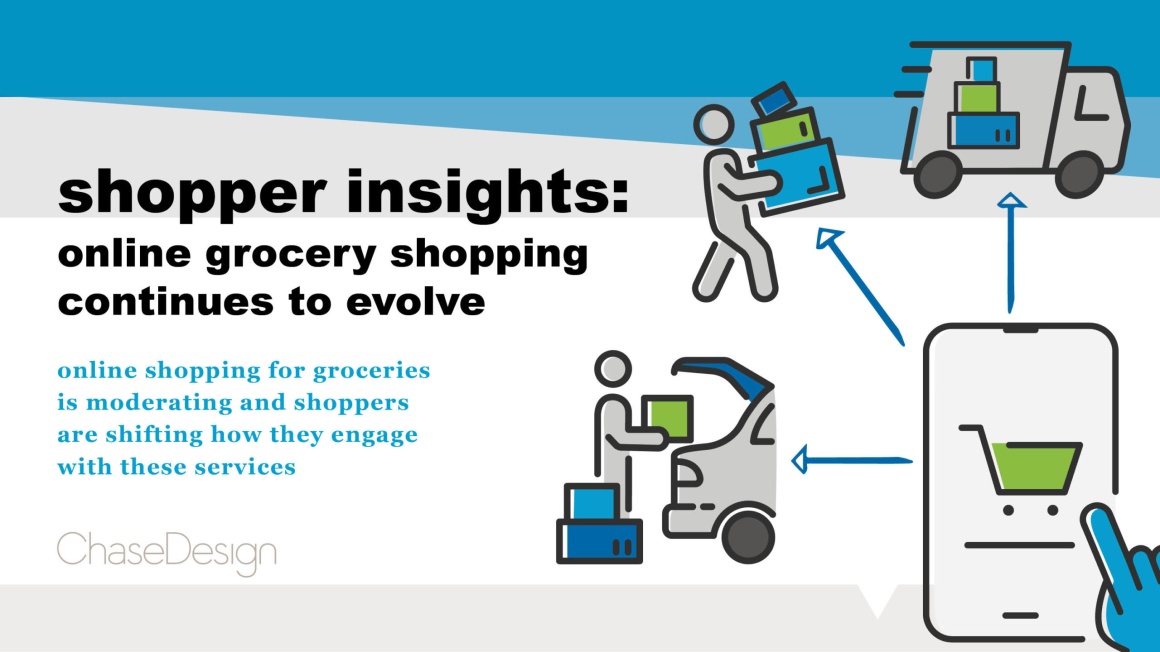The number of retail customers using buy online pickup in-store (BOPIS) “all the time” declined by one-third (45% down to 32%) last year and is expected to shrink further in 2022. Shoppers relying on home delivery of groceries purchased online will also decline in the near-term future by nearly one-quarter. In-store shopping remains the dominant channel for buying consumer goods and is expected to grow in 2023, according to analysis of new research from ChaseDesign, the category growth design agency.

These trends will require brands and retailers to rethink how and where they’ll invest for new growth. With the pandemic receding, online shopping has now clearly become a convenience, and one that comes at a price premium. The core of shopping trips remain in physical retail, where the vast majority of grocery purchases are still made.
The ChaseDesign Online Shopper Survey also found that both home delivery, which became a vibrant part of many shoppers’ overall shopping routine during the pandemic, now faces issues with value delivered, possibly accelerated by inflationary times. The number of people who claimed to “always” use delivery to home when buying groceries dropped by half (16% in 2022 down from 31% in 2021).
The reason cited most often by consumers for not wanting to shop online for groceries is simply that they prefer to shop in a physical store. “This is driven by a lack of trust in having retailers pick and deliver exactly what the customer wants. Our survey shows 33% of shoppers have issues with the quality of products selected and a slightly lower percentage are worried about availability through the digital platform”, says Joe Lampertius, President of ChaseDesign.
Other key findings from the Online Shopper Survey include:
- There’s a $50 million “commerce gap” between pick up in store vs. pick up at curbside when it comes to the incremental purchases shoppers make. For shoppers who buy online and pick up in store, 42% pick up additional items versus 32%for pick up at curbside
- Online grocery shoppers avoid categories where careful selection matters most to them, like meat and seafood, produce, dairy products, deli, bakery and floral.
- Walmart has proven to provide the best BOPIS, curbside pickup, delivery to home and usage of these services through its app, while also having most the improved services over the past year.
“Our survey pinpoints several opportunities for retailers trying to take advantage of the new shopping environment. For instance, 10% more curbside pickup shoppers complained about the time wasted in their cars waiting for their order in 2022 over last year. If the retailers use that captive time average five to 10 minutes with some shopper engagement and improved impulse merchandising strategies, brands and retailers will be rewarded with a more loyal customer and incremental purchases,” said Lampertius.
“We have been working to improve the curbside pick-up experience across several leading clients,” he continued. “A great example is the conceptual work we’ve done for Planters nuts that uses digital integration of last-minute add-on items in the retailer’s app, while also providing impulse merchandising units at point of pick-up, to create new opportunities for impulse sales.”






